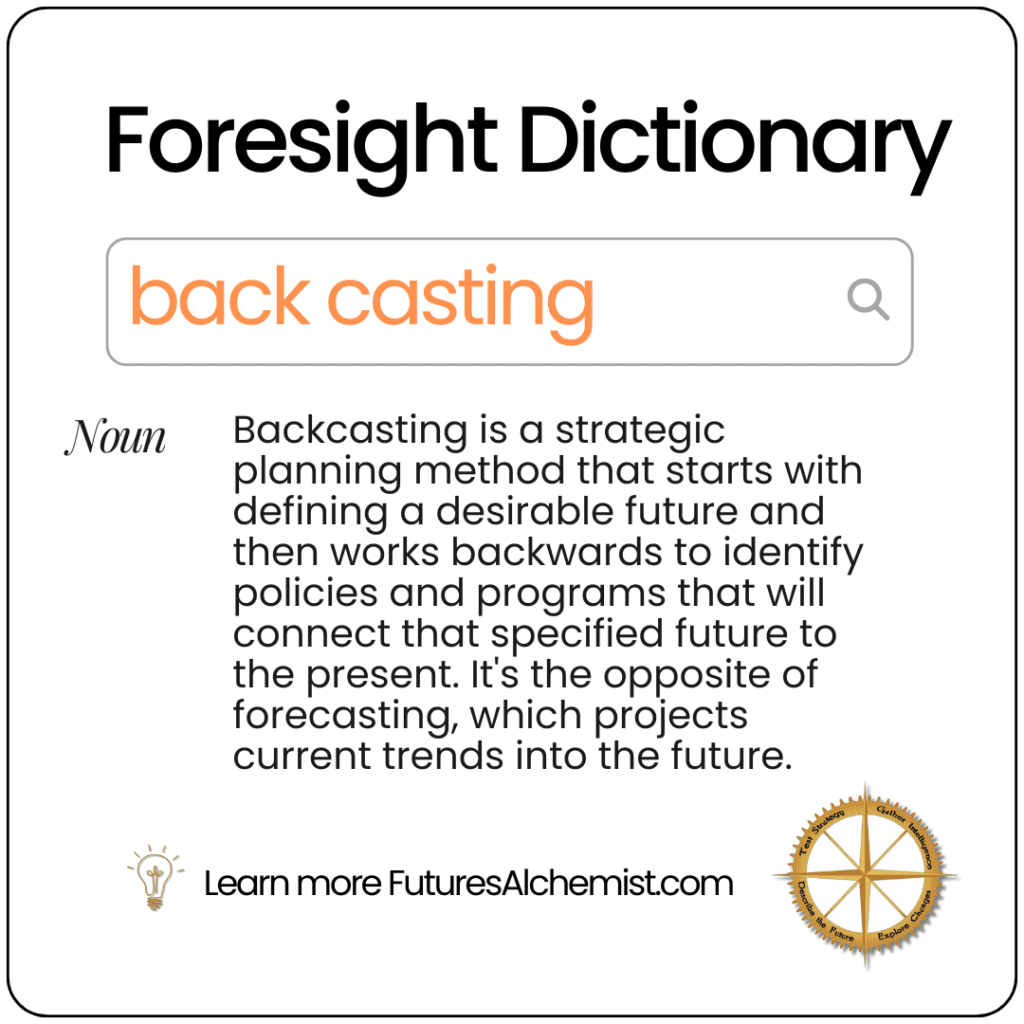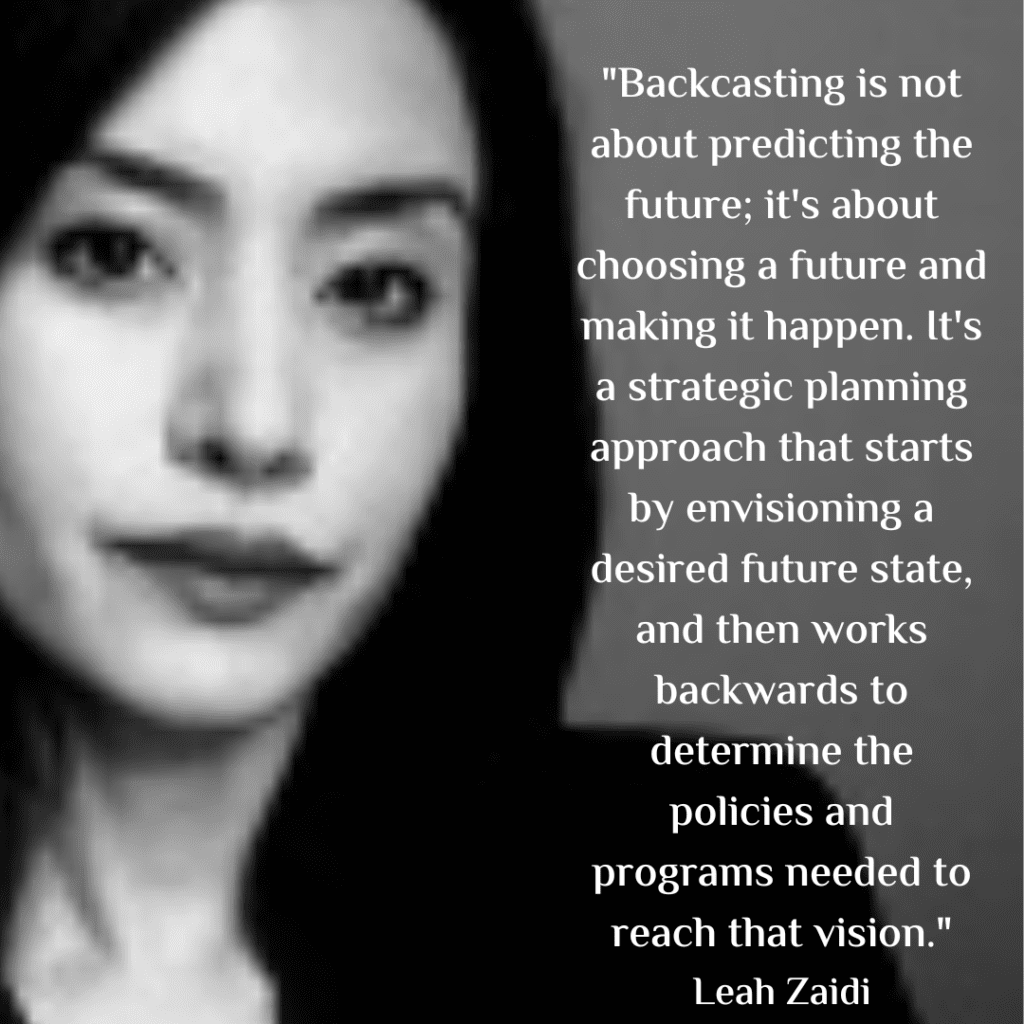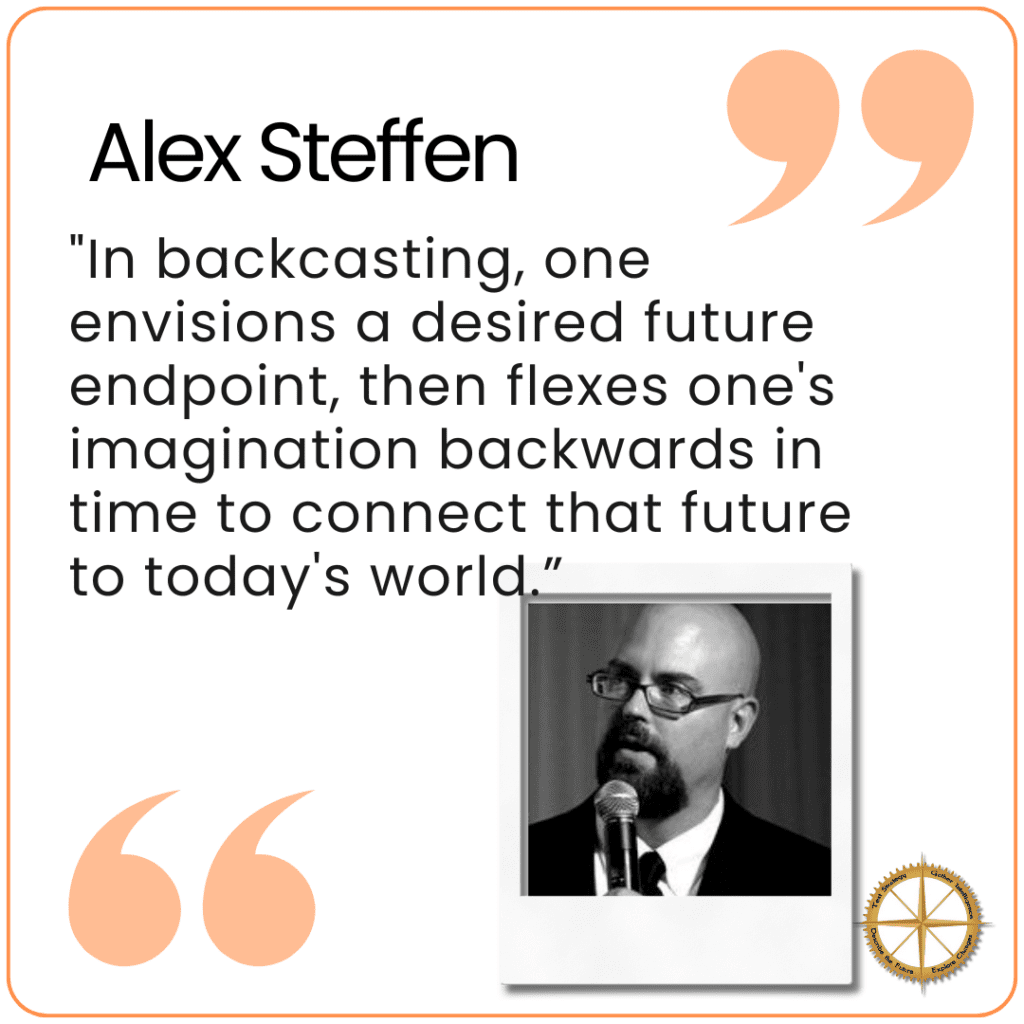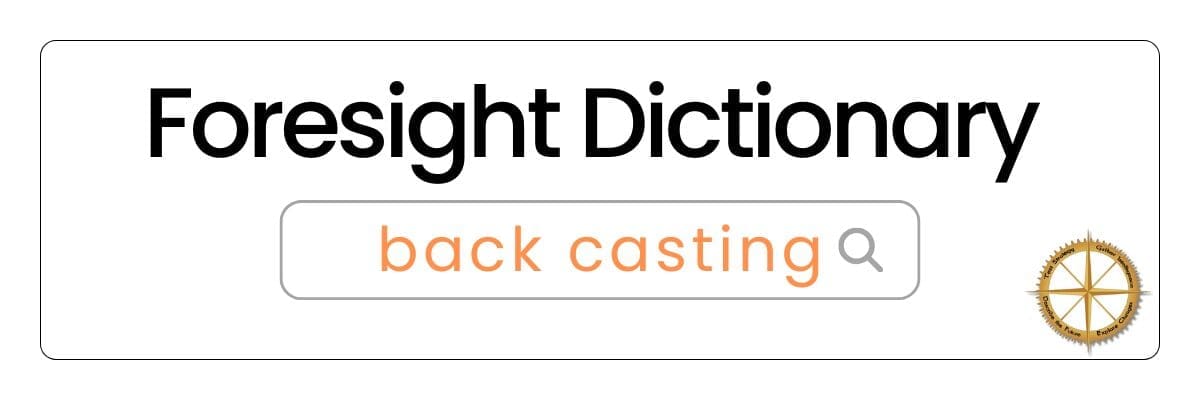

Definition
Backcasting is a strategic planning method that starts with defining a desirable future and then works backwards to identify policies and programs that will connect that specified future to the present. It’s the opposite of forecasting, which projects current trends into the future.
Example
The Transition Towns movement, which originated in Totnes, England in 2006, uses backcasting as a core approach. Transition Town initiatives start by envisioning a future in which their local community has drastically reduced its carbon footprint and increased resilience in the face of challenges like climate change and resource depletion.
Transition Town groups then work backwards to identify the specific steps, policies, and initiatives needed to transition their community towards that desired future state. This may include things like developing local renewable energy sources, creating community gardens and food forests, launching skill-sharing workshops, and redesigning transportation systems.
Tools
- Scenario planning
- Visioning workshops
- Roadmapping
- Delphi method
- Futures wheel
Ask yourself
- What is your ideal vision for the future?
- How does your desired future differ from current trends?
- What policies or innovations would be required to reach your desired future?
- What would be the second last step of your plan to achieve your desired future?






